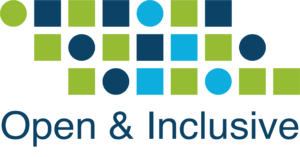
Join us for the next open & inclusive Special Interest Group on Tuesday 11th October 2022 (14:00 – 15:00 BST) to hear Dr Francisco Iniesto talk on Understanding the Different Perspectives of MOOCs Accessibility. All are welcome!
Abstract
An accessible MOOC environment should consider every learner’s abilities, learning goals, where learning takes place, and needs for specific devices to facilitate the learning experience. Learners with accessibility needs can face difficulties in using certain technologies, and different MOOC designs may also affect their self-regulation skills, engagement, and communications with their fellow learners. Unfortunately, technologies and pedagogies used in MOOC platforms are not necessarily accessible. This presentation will showcase my doctoral and related research about MOOC accessibility. The investigations involved conducting interviews with a range of stakeholders (providers and learners), analysing survey data, and conducting an accessibility audit. The results provide an insight into the understanding of how MOOC providers cater for learners with accessibility needs, the motivations of learners participating in MOOCs, and ways to improve the accessibility of MOOCs.
Bio
During his time as an employee in IET Francisco has been a full-time research associate for OpenTEL for one year. OpenTEL is a priority research area that brings together researchers across the university, with existing research capabilities and established excellence on TEL projects. He was responsible for coordinating OpenTEL several lines of research and events including the creation of the special interest group “Open & Inclusive” which still coordinates.
Other projects where he has been involved part-time include the early stages of ACCESS, a project which is drawing on existing and emerging evidence to inform the design of the programme through an adaptive, people-centred approach through co-creation for Sexual and Reproductive Health and Rights. In this case, Francisco was responsible for investigating the latest methods on codesign within the area of educational technology and health education. More recently he has overseen the trials and research of the most up to date technology in educational virtual assistants for Assistants to the Disclosure and Management of Information about Needs and Support (ADMINS) a project which implies using participatory design, to build a virtual assistant as an alternative to the forms disabled students complete to access study support.
One of the projects Francisco invests currently more time in is the GO–GN Global OER Graduate Network (GO-GN) a network to support PhD candidates around the world whose research projects include a focus on open education. I this case he coordinates the fellowship scheme, where IET is supporting the research of nine alumni of the network with a strong focus on the Global South and EDI values. GO-GN has started a mentoring program in Latin America named Collega.
Other international projects that complement Francisco’s research in Open Education and Inclusion are Erasmus + funded projects Accelerating the transition towards Education 4.0 in HEIs (TEACH4EDU4), European MOOC Consortium Labour Market (EMC-LM) and Relevant assessment and pedagogies for inclusive digital education (RAPIDE), these projects include the use of Microcredentials in the labour market and new concepts such as Education 4.0 in Computer Science.
During his time at IET, he has got teaching experience, since 2019 he is an associate lecturer for the School of Computing and Communications, currently tutor at the modules TM354 “Software Engineering”, M269 “Algorithms, Data Structures and Computability” and TM470 “The computing and IT project”. He has been involved in the creation of the OU Microcredential in FutureLearn “Online teaching: accessibility and inclusive learning”. As well he is tutor for the Master in “Secondary Education, Professional Training and Language teaching” (HE teaching certificate) and the two modules on the development of accessible mobile apps, all these posts are at the School of Computer Science, UNED.